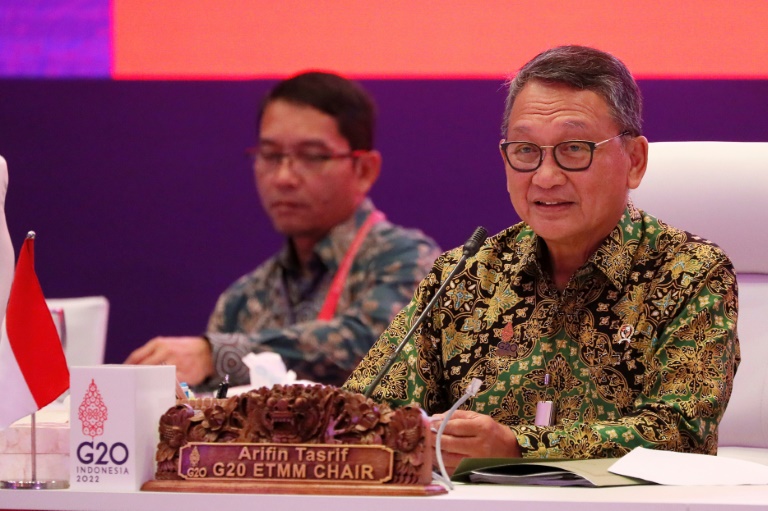Indonesian energy minister Arifin Tasrif said officials failed to reach a consensus on a joint communique
G20 energy talks in Bali ended Friday with the world’s leading economies pledging to accelerate the transition to cleaner energy, but there was no binding agreement as officials struggle to overcome discord over Russia’s invasion of Ukraine.
The price of energy has skyrocketed since Moscow launched its military offensive, with many Western countries scrambling to find alternative sources in an attempt to cut ties with Russia.
Energy upheavals have put pressure on global efforts to address climate change.
Host Indonesia put forward a plan at the talks outlining principles to speed up a “fair” transition to greener energy and it was endorsed by the G20 nations.
The non-binding “Bali Compact”, which lists principles for achieving net zero emissions, was agreed by all members, Indonesian energy minister Arifin Tasrif said.
Details were not released but the minister said the plan seeks to strengthen national energy planning and implementation to improve energy security, efficiency and boost investment and financing.
“G20 energy ministers sent a strong signal to the market that policymakers are taking action to strengthen the investment-enabling environment,” Tasrif told an online press conference Friday.
But the officials failed to reach a consensus on a joint communique due to “differences among countries” at the one-day meeting, Tasrif said without elaborating.
Several nations, including Britain and France, denounced the invasion of Ukraine and said it had destabilised energy supply.
The presence of Russia at the forum meant a consensus could not be reached for a communique, a source close to the meeting told AFP.
The “current energy crisis shows the urgency to accelerate the energy transition”, the source added.
Representatives from the United States, Saudi Arabia, Australia, Germany, India, South Africa and the European Union were also present, according to a list seen by AFP.
The energy talks follow G20 environment discussions in Bali on Wednesday that also ended without a joint communique, reflecting divisions among member countries over how to tackle climate change.
Britain’s climate minister Alok Sharma said governments should “revisit and strengthen” their commitments to achieving net zero emissions.
“There must not be any backsliding on commitments,” he tweeted on Wednesday.
This week’s talks are a prelude to a November leaders’ summit that Indonesian President Joko Widodo has said Russian counterpart Vladimir Putin will attend despite Moscow’s isolation.









